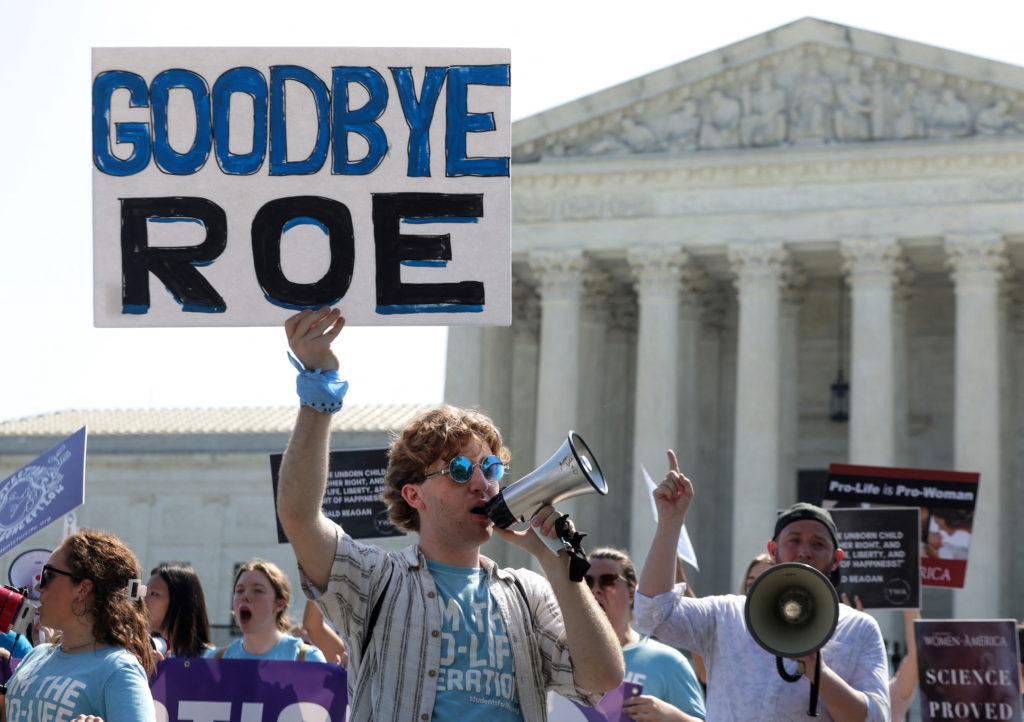Last week the Court, as expected, overturned Roe v. Wade. Reactions are, as expected, mixed. The “pro-life” and “pro-choice” arguments of the last 50 years resurface as women, states, churches, and others scramble to pronounce their points of view. The decision is likely to play a significant role in the 2022 and 2024 elections.
Much has been written about Dobbs v. Jackson Women’s Health Organization, the decision overturning Roe. Technically, the decision does not ban abortion. Instead, it rescinds the right to an abortion and sends the regulation of abortion to the states. Because at least 22 states already have banned or severely restricted abortions, the decision effectively bans abortions for millions of women. Thousands of women will be forced to birth babies they had determined they did not want or were unable to care for.
While many have focused on the legal arguments of Dobbs, I reflect more on the logical inconsistencies reflected in a court that has effectively banned abortion but still allows the death penalty. Similarly, the decision will result in thousands of babies being born that may lead lives of misery not just because their mothers were unprepared to raise them (or didn’t want to), but because of poverty.
The Declaration of Independence references the “unalienable rights” of life, liberty, and the pursuit of happiness. Many babies born because of Dobbs may not have much of a life, may have extremely limited liberty, and may be denied the pursuit of happiness. Of course, many such babies may lead happy, healthy, productive lives despite being “unwanted children.”
Some babies born as a result of Dobbs may eventually commit capital crimes and be put to death by the government. Ironically, some of the younger justices on the Court, including the Trump Trio of Gorsuch (54 years old), Kavanaugh (57 years old), and Barrett, (50 years old), may still be on the Court when appeals of death sentences of some of the babies (now adults) will reach the Supreme Court. Ironically, the same justices who effectively forced their mothers to unwillingly give them birth will vote to let them be executed.
Another deeply troubling aspect of the decision is the matter of effectively forcing the birth of human beings and then not caring for them. If you adopt a dog and then abuse it by not feeding it, giving it proper shelter, or otherwise treating it in a humane manner, you can be prosecuted. The concept is that when you adopt a dog, you accept a slate of responsibilities. In the case of an unwanted child, a child born because a woman was unable to get an abortion after concluding she did not want or was unable to care for the child, the state (the government) is responsible for the child being born. Shouldn’t the state be responsible for ensuring the child receives proper healthcare, an education, and the right to “pursue happiness?”
I am angry at Republicans and religious zealots who champion the “right to life” but oppose universal healthcare, spending on education, job, and income security, and other “basic human rights.” Those people championing the “sanctity of life,” are hypocrites, in my view, when they force babies to be born without also championing the “right to live.”
Child poverty in the U.S. is a disgrace. Eighteen percent of all children live in poverty—thirteen million children. The Supreme Court’s decision, coupled with the hypocrisy of the Court and others in not somehow ensuring that the babies forced to be born are not doomed to join the thirteen million, is effectively denying the “right to live” for many of these babies.
A final reflection on the decision is that it suggests the Supreme Court and other aspects of the Constitution may be broken or obsolete. The Court returned the decision on whether to permit abortions to the States based on a controversial reading of the Constitution and its amendments. That result is contrary to the wishes of 65 percent of the population. Is it too much to suggest Dobbs is evidence of Constitutional dysfunction?
The disconnect between the current Supreme Court and the wishes of much of the country suggests that it may be time to rethink the role of the Supreme Court and other aspects of the Constitution. Should Justices be subject to term limits? Should the process of amending the Constitution be made simpler to facilitate the adoption of amendments to establish rights such as same-sex and interracial marriage, or the right to contraception and abortion? These are tough questions, but they are becoming increasingly “ripe for consideration.”
J.E. Dean is a retired attorney and public affairs consultant writing on politics, government, birds, and other subjects.



Bob Moores says
All good points, John, even without considering mothers’ health issues, emotional and physical. In our country, women are still treated in many respects as second class citizens. You would expect that in Saudi Arabia, not here. To think that in some states a twelve-year-old girl will be forced to bear a child resulting from rape by her father is something you would expect to read about in history of the Middle Ages or earlier. Retrograde thinking; not enlightenment.
Don E. Itall says
So, that is an issue, Bob, that can be addressed at the state level; exactly where it should be. I suspect there is a straw man here, but it is exciting and attention getting.
John Dean says
Bob: I could not agree more. Thank you for reading the piece.
John Dean says
Bob: Thank you for reading he piece.
Anne T Stevens says
Thank you. Well said.